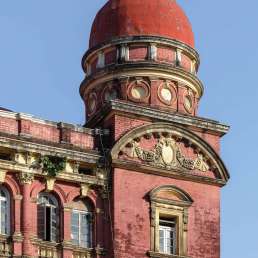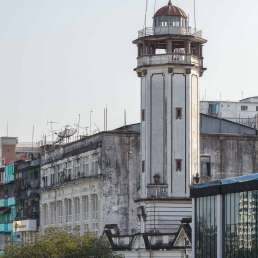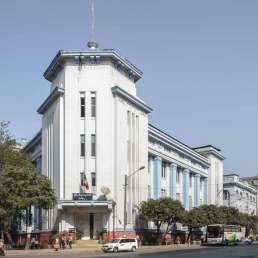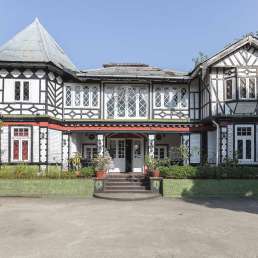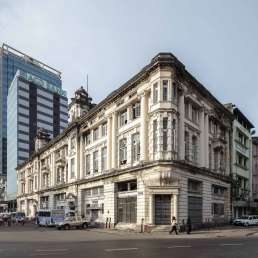Formerly: Balthazar & Son
Address: 581 Merchant Road
Year built: 1926
Architect: Unknown
With business flourishing, Balthazar & Son expanded onto these adjacent premises on Merchant Road. This is clearly a more modern building, yet the design imitates its older red brick neighbour. Thanks to long-term use as an embassy, it has been regularly maintained and is in rather good shape today. It is simple and stately, with three floors and a bulky cut-stone portico greeting its visitors. The former tenants made some alterations, including tight window grilles on the ground floor and two walled-up windows on the third floor. Large antennas on the top floor hint at the building’s previous diplomatic functions.
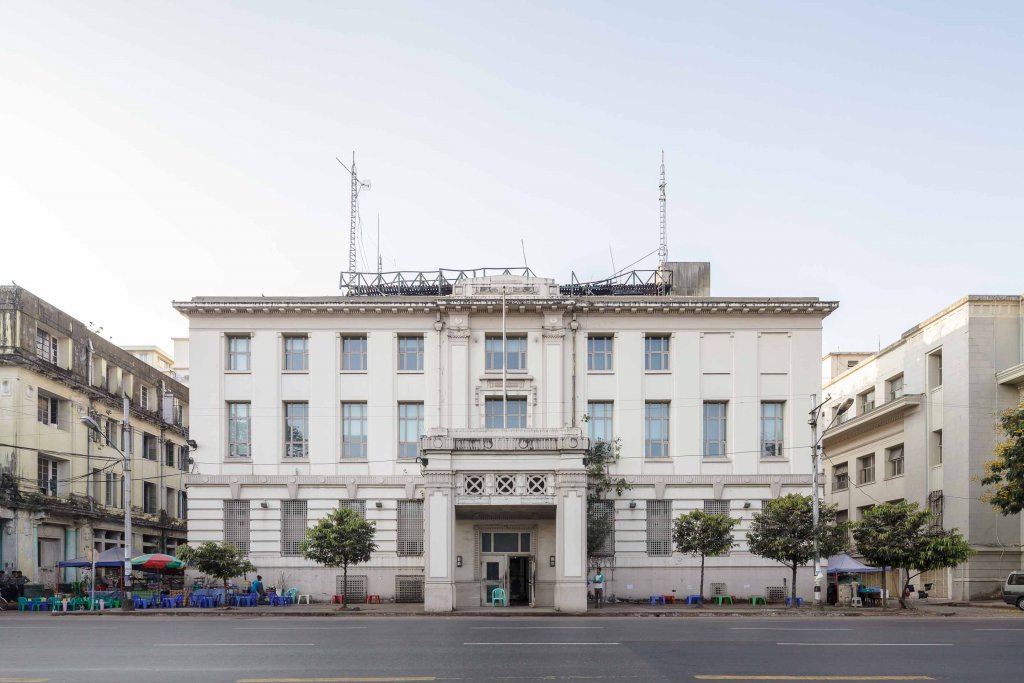
The US Embassy moved into these premises soon after Burmese independence. Burma was of utmost strategic interest to the Americans, who feared the spread of Communism in the region. They helped the Chinese Kuomintang regroup in the north of Burma, following their defeat by the Communist Party in the late 1940s. They supported preparations for a counterattack on Kunming, but this plan failed to materialise. As an unintended consequence, parts of Shan State became a hiding ground for these Chinese rebels, which led to the growing cultivation of poppy in the region. This haunts the Golden Triangle (the remote border areas between Myanmar, Laos and Thailand) to this day. Although the US ambassador at the time, William Sebald, denied knowledge of covert CIA operations on Burmese soil, Burmese Prime Minister U Nu was enraged and threatened to sever diplomatic ties between the countries.
In 1988, embassy staff witnessed the dramatic uprisings outside their window. When Burmese security forces opened fire on the demonstrators, Ambassador Burton Levin ordered the Marine Guards to open the door and let civilians seek shelter inside the grounds. The US did not replace Levin when he retired in 1990, reflecting the frosty bilateral relations that followed. A chargé d’affaires was to represent the United States in the following years. In 2012, Derek Mitchell was appointed the new US ambassador and Myanmar has become an important facet of the Obama Administration’s stated “pivot to Asia”. President Barack Obama visited the country in 2012 and 2014, both times delivering speeches at Yangon University. The administration began lifting sanctions on Myanmar in 2012 and is pouring aid money into the country, including in sectors that would have been inconceivable to support before 2011. For example, in 2014, the US aid agency committed to spending an eye-catching 20 million US dollars on “strengthening civil society and the media” in the country.
